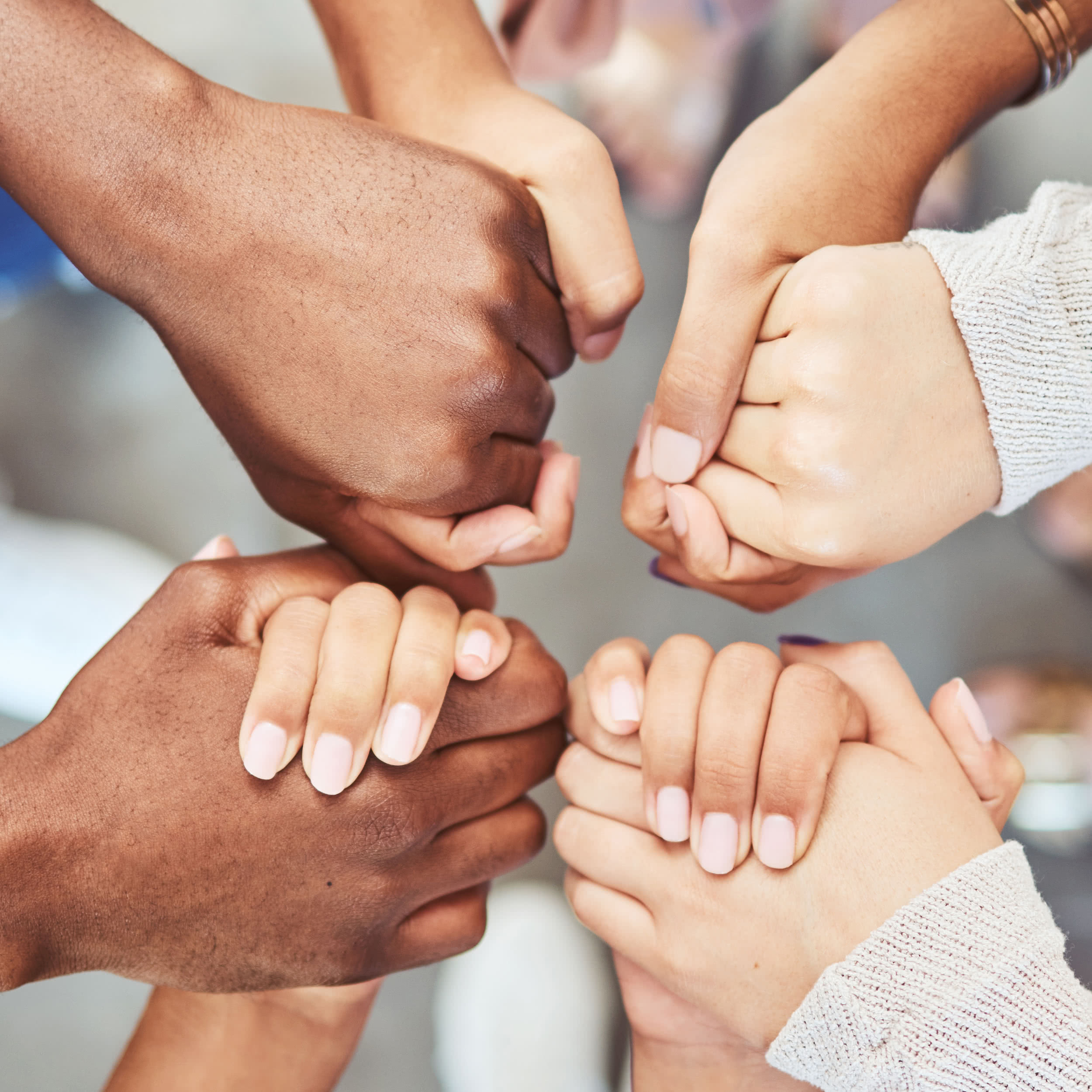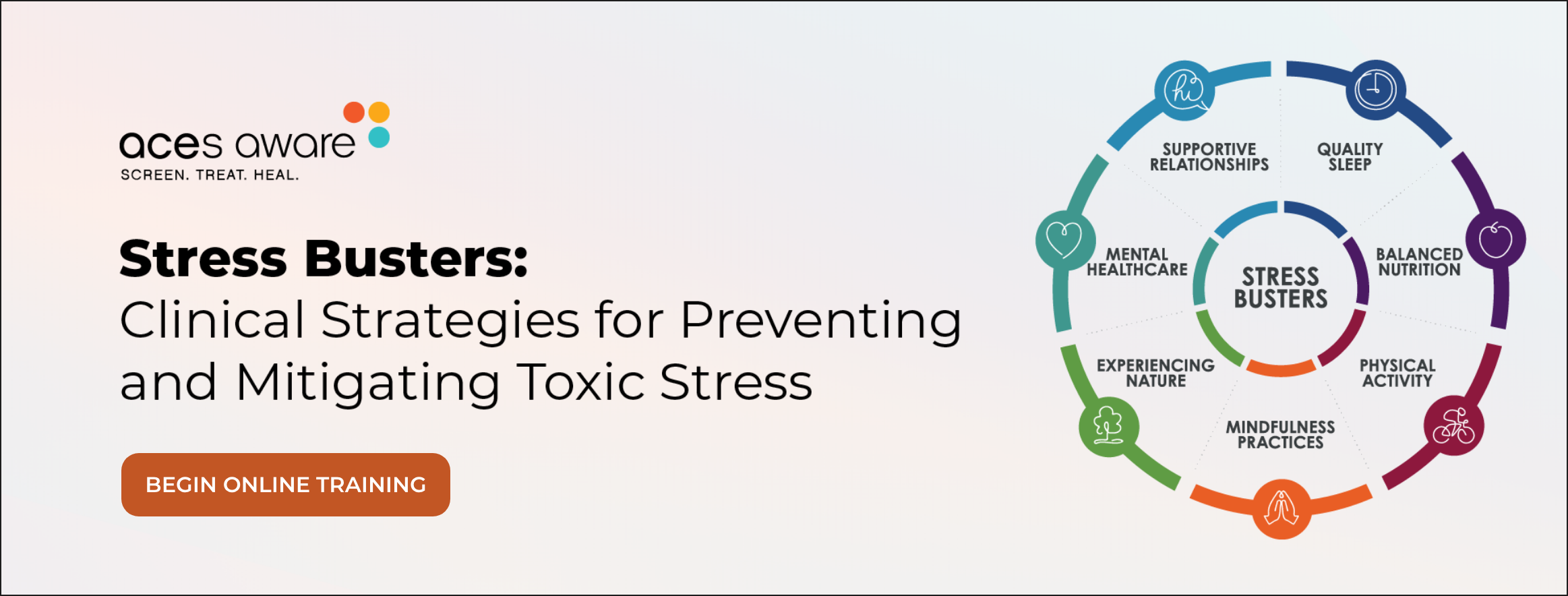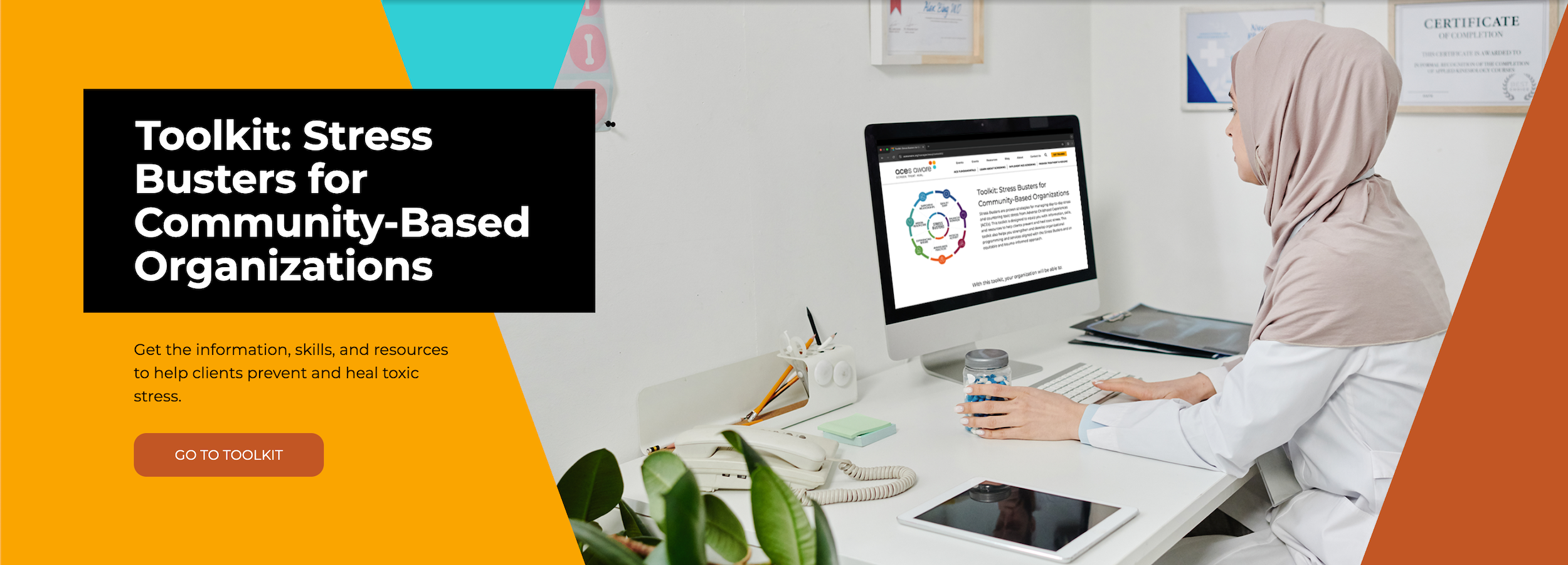Mental Healthcare
What we think, how we feel, and how we act all impact our physical health. The flip side of that is also true: our physical health can impact what we think, feel, and do.
It is important to take care of all parts of ourselves – our brains, bodies, thoughts, and feelings.
If you are feeling anxious, sad, or isolated, you’re not alone. These feelings are common. For when we need more support, mental and behavioral health care providers can help us build skills for resilience, provide a safe, supportive, and trusting relationship to discuss worries, and provide treatment for mental health issues.

Resources for Professionals
Looking for resources to address Mental Healthcare with patients and clients? See Professional Resources within the Stress Busters for Community-Based Organizations toolkit.
Resources for Everyone
Want tips and tools to help support your mental health? The following resources can help.
General
- DID YOU KNOW? Nurturing Our Mental and Emotional Health Can Help Prevent and Manage Stress (ACEs Aware)
- Mental Health Care Stress Buster Video (California Virtual Training Academy Resources)
- How Right Now: Tools, resources, and links for mental health support (CDC)
- Black Emotional and Mental Health Collective (BEAM) provides a phone hotline, programs that center Black mental health and healing, a black wellness directory, and wellness tools.
- The Trevor Project provides a chat/text/phone hotline, resource center, and an online community space for LGTBQ+ people.
- Mental Health First Aid Resources (National Council for Mental Wellbeing)
- Practicing Gratitude Resources (CDC Heal Right Now)
- How Creating A Sense of Purpose Can Impact Your Mental Health (article in Psychology Today)
- Find volunteer opportunities to boost mental health by fostering a sense of purpose, reducing stress, and increasing social connections (VolunteerMatch).
Things You Can Do Right Now
- Reach out to a person you trust like a friend, teacher, relative, mentor, or therapist (see Supportive Relationships Stress Buster resources)
- Try breathing, grounding, meditation, or journaling exercises (see Mindfulness Stress Buster resources)
- Go outside and spend time in nature (see Experiencing Nature Stress Buster resources)
- Release stress energy with some physical activity (see Physical Activity Stress Buster resources)
- Use tools and resources to improve your sleep tonight (see Sleep Stress Buster resources)
- Consider mindful eating and ways to beat stress cravings (see Nutrition Stress Buster resources)
- In crisis?
- Get Help Right Now (CDC)
- Crisis and Safety Resources (ACEs Aware)
Community Resources
- www.211.org: Call, text, or type in your city or zip code to find resources near you
- findhelp.org: Type in your city or zip code to find resources near you
- calhope.org: Free mental health resources, including a peer warm line and live chat
Mental Health Assistance
- Getting mental health assistance in California
- Find your county mental health crisis intervention number
- State programs from the California Department of Health Care Services, Mental Health Services Division
- Find treatment for substance use:
- Substance Use County Access Lines
- Shatterproof Treatment Atlas: Identify the appropriate type of addiction treatment that meets your needs, and locate a high-quality facility.
- Mental health and substance abuse rehabs: Learn about mental health and addiction treatment and find support (mentalhealthproviders.org)
- The National Alliance on Mental Illness (NAMI) free helpline
- Monday – Friday 7am to 7pm
- 1-800-950-NAMI (6264)
- Crisis Text Line – Text NAMI to 741-741
- Specific trauma therapies:
- Learn about Trauma-Focused Cognitive Behavioral Therapy (TF-CBT), and find a therapist.
- Learn about Eye Movement Desensitization Therapy (EMDR), and find a therapist.
- Learn about additional trauma therapies at Stress Busters Resources for Professionals | Mental Healthcare
Parents and Kids
- Stress Health: Mental Health (Center for Youth Wellness)
- Improving Mental Health English, Spanish, Portuguese (Center for Youth Wellness)
- Resources for how adults can help children who have had traumatic experiences (Sesame Workshop)
- Learn about Child Parent Psychotherapy, and find a therapist.
- Learn about Parent Child Interaction Therapy, and find a provider.
- BrightLife Kids: Free mental health services for kids ages 0-12 (e.g., live, 1:1 video sessions, secure chat, app, on-demand content)
- Learn more about child trauma at the National Child Traumatic Stress Network
- For parenting stress support:
- The California Department of Social Services provides a Parent Resource Page
- California Parent & Youth Helpline: Call or text 855-427-2736
Youth and Young Adults
- Live Beyond Campaign: Care for Your Mental Health (Children and Youth Behavioral Health Initiative (CYBHI))
- Take Space to Pause (CYBHI)
- Check out the US Surgeon General’s Advisory, “Protecting Youth Mental Health” with a wealth of information on what young people, family members, and caregivers can do to help.
- Soluna app: Free mental health chat with a coach for 13- to 25-year-olds
As We Age
- Mental Health Resources and Support (National Council on Aging)
- Older Adults and Mental Health (National Institute of Mental Health)
NEURODIVERSITY
Being a neurodivergent person in a world designed for neurotypical people can be a constant source of stress. Neurodivergent individuals (people who are autistic or have other neurological or developmental differences like attention-deficit/hyperactivity disorder (ADHD), dyslexia, or other learning disabilities) are at increased risk for ACEs, discrimination, bullying, and mental health challenges. These resources can offer support:
- Understood: Nonprofit providing free, expert-vetted resources and support to people with learning and thinking differences
- AASPIRE Toolkit: Provides information and worksheets for adults on the autism spectrum, supporters, and health care providers
- All Brains Belong: Nonprofit community health organization working to make life better for people with all types of brains; provides neurodiversity-affirming medical care, social connection, employment support, and neurodiversity education
- Autistic Self Advocacy Network: Nonprofit organization run by and for autistic people that seeks to advance the principles of the disability rights movement with regard to autism.
- Autistic Women and Nonbinary Network: A non-profit committed to disability justice, gender and racial equity, neurodiversity, and trans liberation with a focus on transformative and restorative justice in disability spaces.

